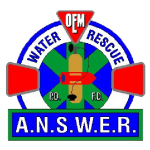A message from Neptune Township Office of Emergency Management:
It has been an incredibly cold winter. Today, February 20, temperatures are below 0 degrees.
When it comes to winter storms, you should know the different levels and potential impact that a storm will have. Here are the various levels that are provided by media and weather organizations.
- Winter Storm Outlook – Winter storm conditions are possible in the next 2 to 5 days.
- Winter Weather Advisory – Winter weather conditions are expected to cause significant inconveniences and may be hazardous. When caution is used, these situations should not be life threatening.
- Winter Storm Watch – Winter storm conditions are possible within the next 36 to 48 hours. People in a watch area should review their winter storm plans and stay informed about weather conditions.
- Winter Storm Warning – Life-threatening, severe winter conditions have begun or will begin within 24 hours. People in a warning area should take precautions immediately.
In addition, here are some Winter Safety Tips for dealing with below freezing temperatures. This information is shown courtesy of the American Red Cross.
- Wear layers of clothing to stay warm, along with a hat, mittens and waterproof, insulated boots.
- Avoid frozen pipes – run water, even at a trickle, to help prevent them from freezing.
- Be extremely careful if you have to shovel snow. Take frequent breaks and stay hydrated.
- Be aware of Carbon Monoxide poisoning. Make sure that your home has working Carbon Monoxide (CO) detectors.
- Do not use stove/oven for heat.
- Watch for hypothermia and frostbite. Hypothermia symptoms include confusion, dizziness, exhaustion and severe shivering. Frostbite symptoms include numbness, flushed gray, white, blue or yellow skin discoloration, numbness, or waxy feeling skin.
- Don’t forget your pets – bring them indoors. If they can’t come inside, make sure they have enough shelter to keep them warm and that they can get to unfrozen water.
- Check on your neighbors, especially elderly people living alone, people with disabilities and children.
- Avoid driving on snow-covered roads if possible. If travel is necessary, keep safety kit in your vehicle.
- If your car breaks down, do not try to walk to safety. Tie a bright cloth to the antenna. Start the car and use the heater for about 10 minutes every hour, making sure the exhaust pipe is clear. Keep one window away from the wind slightly open.
For additional information on Winter Weather Preparedness, please visit these informative websites.
##


